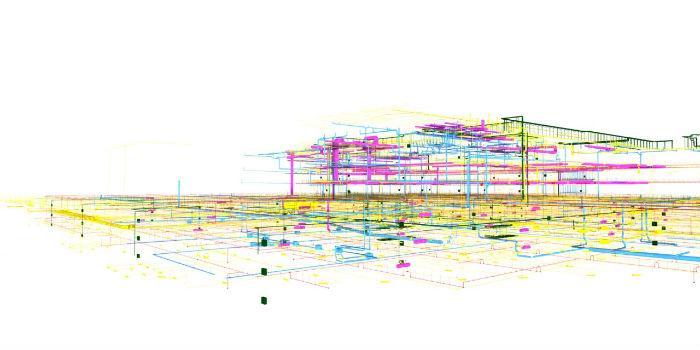 Colombia. In today's business environment, it is no longer a question of adopting a cloud solution for data storage, where data is stored on remote servers accessed over the Internet, but how to adopt a cloud solution as part of a broader data storage strategy.
Colombia. In today's business environment, it is no longer a question of adopting a cloud solution for data storage, where data is stored on remote servers accessed over the Internet, but how to adopt a cloud solution as part of a broader data storage strategy.
Today, globally 70% of all organizations have at least one application stored in the cloud and projections tell us that by 2018 an average company will have less than half of its applications and platforms on on-premises systems.
"The increased use of cloud space has ushered in a new era of options that help businesses become smarter and more agile. But it has also made the decision-making process more complex," said Dan Peterson , a member of the steering committee of Colliers International's Technology Solutions Group. "Determine what kind and how much data should live in clouds. private and public, on-premise and in third-party environments can be tricky in light of the expanding spectrum of available options."
In making this decision, most companies today are coming up with some sort of hybrid mix of data storage services, but that's just the beginning of determining the implications for real estate requirements.
"Given the wide variety of data storage models that have emerged, many companies need a new look at their real estate strategies. They need an approach that reflects where their business and technology needs are headed, reviewing both the physical footprint and the connectivity network needed to support true alignment," said Chris Zlocki , head of innovation of the Colliers group "Corporate Solutions".
Three critical questions
Latin America. Defining that real estate strategy with respect to the particular requirements of your business is a complex process. Among many others, there are three key questions for companies to evaluate:
- What critical applications do you have that require intimate, close interaction on an ongoing basis?
- What non-essential back-end applications do you have that might be more cost-effective to host in the cloud?
- Are there any special requirements regarding your data that indicate that a third party or provider might be better able to manage it?
Once a company determines where in the hybrid spectrum its data should be, it's time to decide whether the acquisition or lease of a data center is necessary, whether it's a full construction or perhaps a space within a co-located data center makes more sense for your business. a wide variety of commercial and financial requirements particular to each country come into play. In the United States, for example, a new factor in this process and analysis is the Financial Accounting Standards Board's set of rules that will be implemented in early 2019. These rules will require companies to report operating leases on their balance sheets, including leases of real estate and data center equipment longer than one year. Once leasing becomes part of the balance sheet, many companies are likely to reconsider purchasing versus leasing data center space.
"Companies are being provided with real estate opportunities that didn't exist three or five years ago to move from a very capital-intensive model to a much more agile model. Companies now have the ability to leverage flexible solutions, whether it's moving traditional office space to a co-working model or critical data centers that take advantage of co-location options. Like many others. Businesses can now purchase on-demand storage space to meet their needs to scale up, down, and sideways rather than committing long-term capital in a way that limits flexibility," Zlocki said.
The issue of when to examine your data center's real estate needs is crucial for many businesses to address it more strategically. It's common for an office relocation or other real estate event to trigger analysis of IT requirements.
What's next
"As the internet permeates every aspect of our lives, the way we define a data center will change. One day soon, it will be as common to talk about a small data center in the vending machine as a megacenter with 100,000 servers in a cornfield," Peterson said.
The fact that global data needs in the near term look set to continue growing points to long-term opportunities for data center users, owners, and investors. And the anticipated continued increase in cloud adoption is not expected to diminish demand for data centers. but it will probably continue to change the mix of tenants. As a result, some data center owners will continue to see new opportunities to meet the growing demand for geographic reach and reach presented by third-party vendors.
"Data centers can be expensive properties to build and maintain, but every day they become more critical to our economy," Peterson said. "The more data we generate, the more we move toward AI-powered applications and the more we distribute content to the limit, the more we need purpose-built data storage buildings. As in all sectors, there will be ups and downs, but we see long-term stability and attractive opportunities in this area."


























Leave your comment